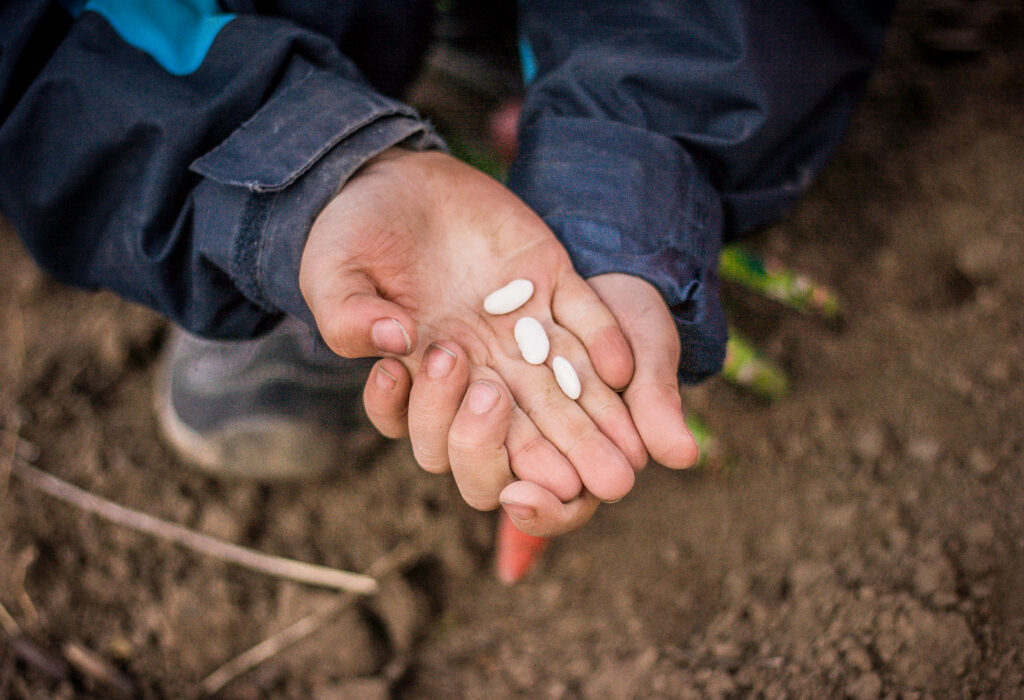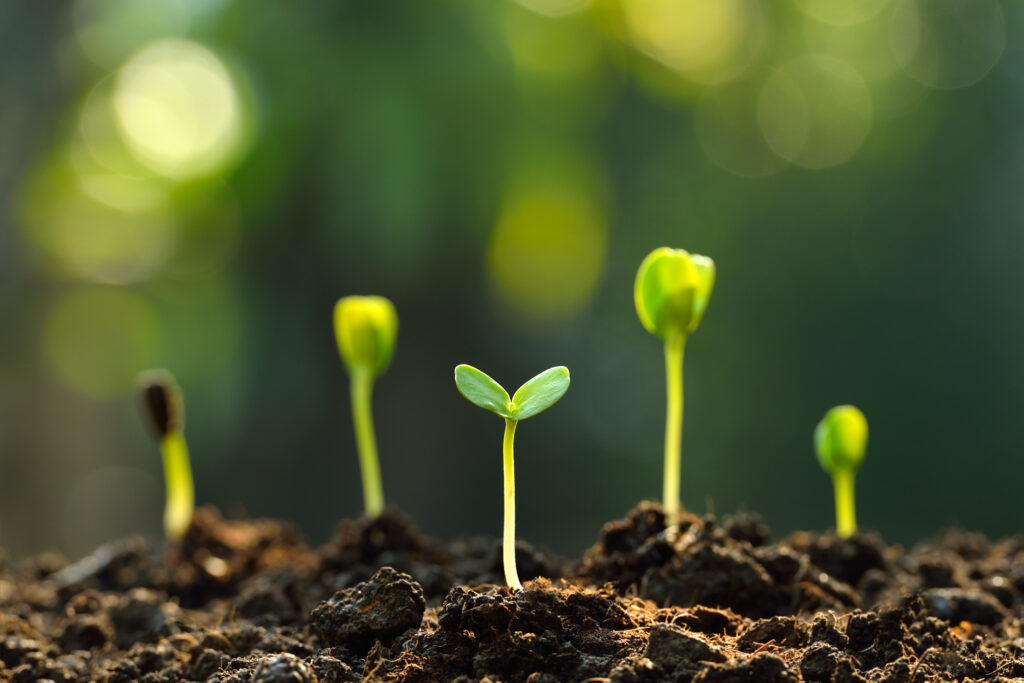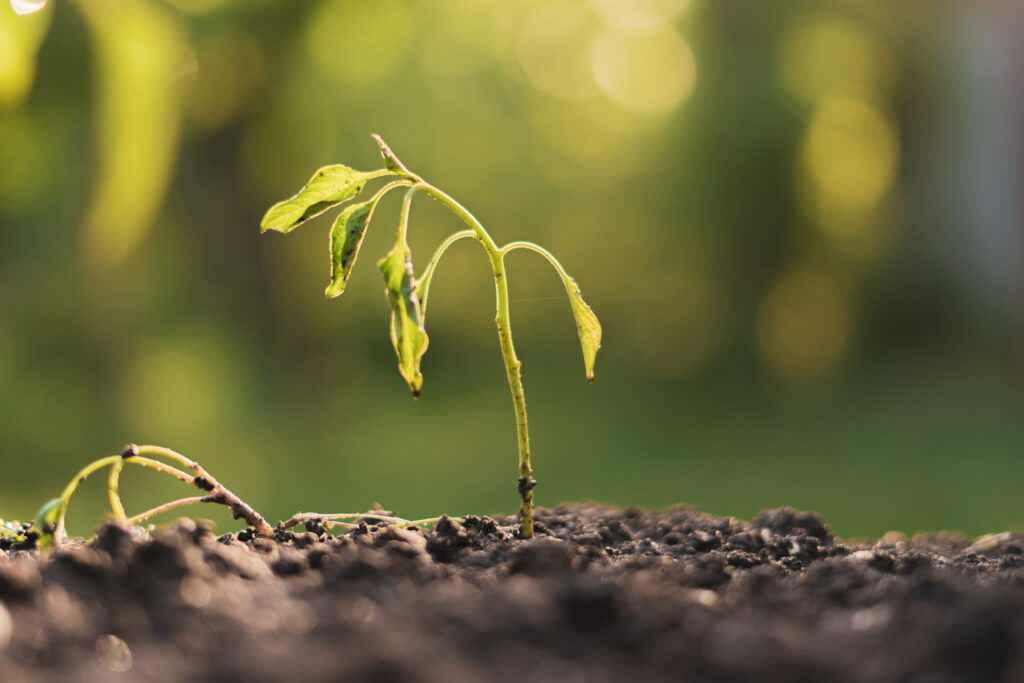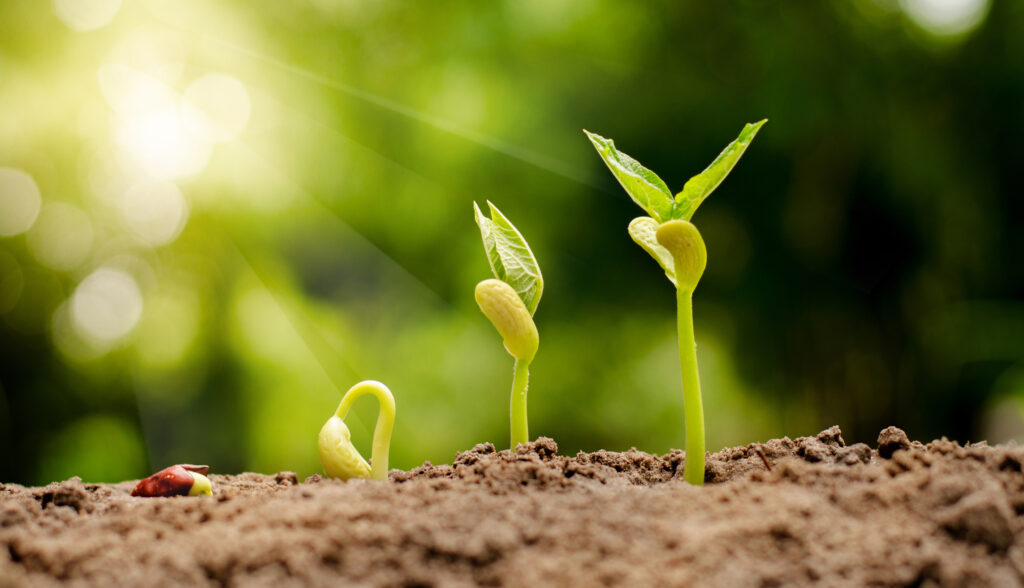
Updated: November 11, 2025
For new gardeners, the first step of growing a beautiful and productive garden may seem to be the most difficult. How to start plants from seeds? In actuality, the germination of vegetable seeds is the most straightforward part of growing a garden. You just need to understand what seeds need and the correct tools to do it with. Gardening is a noble, intellectual, and passionate pursuit that anyone can do, and it all starts from an ordinary, humble seed.
What is a seed?

By definition, a seed is “the fertilized, matured ovule of a flowering plant, containing an embryo or rudimentary plant.”If you provide the seed with exactly what it needs to sprout, it will, in turn, grow into a plant that has the ability to provide us with a bounty of fruits we can eat, preserve, or share. This is quite a magical thing when you stop to think about it. We gardeners should never take this for granted, no matter how proficient we become at starting plants from seeds.
3 Requirements For Germination

- Adequate moisture
- Proper soil temperature
- Oxygen
Adequate moisture is necessary because it is the presence of water that triggers the germination process for most seeds. Your seed starting mix should be pre-moistened and kept evenly moist, but not saturated through the entire process. Successful growers will also pre-soak seeds for 2 to 8 hours prior to sowing. Soaking will help initiate proper germination by allowing water to penetrate the seed coat. This is especially helpful for seeds with thick, hard seed coats.

The soil temperature must be warm enough around the seeds for them to germinate. If it’s too hot, seeds “cook”. If it’s too cold, seeds will stay dormant or simply rot. All vegetable varieties have an optimum range of soil temperatures for proper seed germination. Here are a few examples:
- Beet 50°- 80°F
- Cauliflower 45°- 80°F
- Corn 60°- 95°F
- Pepper 75° – 95°F (The hotter the pepper the higher the temperature should be)
- Tomato 65°- 85°F
The most optimum temperature for seed germination is in the middle of this range. Tools needed to achieve proper soil temperatures are simple but necessary. Use a soil thermometer and employ use of a good Seedling Heat Mat, for seed germination success.
Proper oxygen seems straightforward, but if the air is not present in your soil mix, seeds will fail to germinate due to suffocation. The most common cause of seed germination failure is a lack of oxygen from the starting mix being kept too wet. Potting soil is not an appropriate media for starting seeds, it is too dense and holds too much moisture. It is meant for use with transplants that already have a strong established root system. Always use fresh, sterile Seed Starting Mix for the best success.
My Seedlings Are Dying. Did I Receive Bad Seeds?

If these three requirements (moisture, temperature, and air) are met, and fresh seed is used, you should get a high germination rate. If your seed germinates, and then your seedlings die, this is not because the seed is “bad”. All a seed has the capacity to do is germinate. That’s it!
Common Seedling Problems
If seedlings are dying off, something else in the process is causing a problem and you need to figure out what it is. Is the soil too wet or too dry? Are seedlings damping-off due to fungal pathogens? Does the soil mix lack nutrition? Are air temperatures too hot or too cold? Are seedlings getting enough light? There are many cultural and environmental conditions that must be met to keep seedlings happy.
Seed Germination Testing
Remember, all seeds have the same simple mission; to break dormancy, put down a simple root (radicle) and send up their seed leaves (cotyledons). This is all a seed can do with the energy it has stored. The rest is up to you, the gardener, to make the new seedlings happy, continue to grow, and thrive. Manifestations of “bad seed” are poor or no germination. Under proper conditions, if the seed germinated…it was not a bad seed. Rest assured seed companies thoroughly and continually test their seed lots for germination. We try to maintain seed lots that will test higher than national standards allow. This means we are shipping some of the healthiest, freshest, and most viable seeds available.

4 Requirements For Healthy Plants
You should also know that all of a vegetable plant’s growth habits like how large it gets, how healthy the plant is, and the size, quantity, and quality of the fruit produced is totally dependent on 4 main things:
- The health of the soil
- The cultural care plants receive
- The environmental conditions
- Proper pollination of the plant’s flowers
If a plant becomes infected with a disease, or the plant produces inadequate to no fruit, this has nothing to do with the seed. Failures of fruit production like the size, quantity, or quality of the fruit, relates to care and the environment a plant is growing in, not the seed itself.

All a seed can do is germinate. A child born to doctors will not automatically have the capacity to become a doctor. Give your seedlings the same care and nurturing you give to your children; plenty of sun, elbow room, air to breath, proper nutrition, and moisture. Weak, spindly plants will not reward us with adequate flowers or fruit and plant diseases will latch onto them quite easily. We all need as much optimism as this spring can bring, for our seeds and of course for our children. Remember, gardening is a noble, intellectual, and passionate pursuit that anyone can do, but it all starts from an ordinary, humble sleeping seed.
Other Recommended Reading

- Seed Saving: 4 Important Questions To Consider Before Starting
- Sow Seeds Of Victory: Planting A Victory Garden
- 22 Easy To Grow Vegetable Seeds
- Seed Starting FAQ
- Transplanting Seedlings
- Starting Annual Flower Seeds Indoors

At Jung Seed Co, we strive to be your go-to guide for all your gardening needs. Our YouTube channel The Garden Doctor by Dick Zondag is where he provides gardening tips for all levels of gardeners. When you need reliable gardening advice, turn to the trusted experts at Jung.
View our new catalog online or browse our website for your gardening favorites. To receive info on new products, exclusive deals, and specials, be sure to sign up for our weekly email. Join our Facebook page, to discuss all things gardening!
